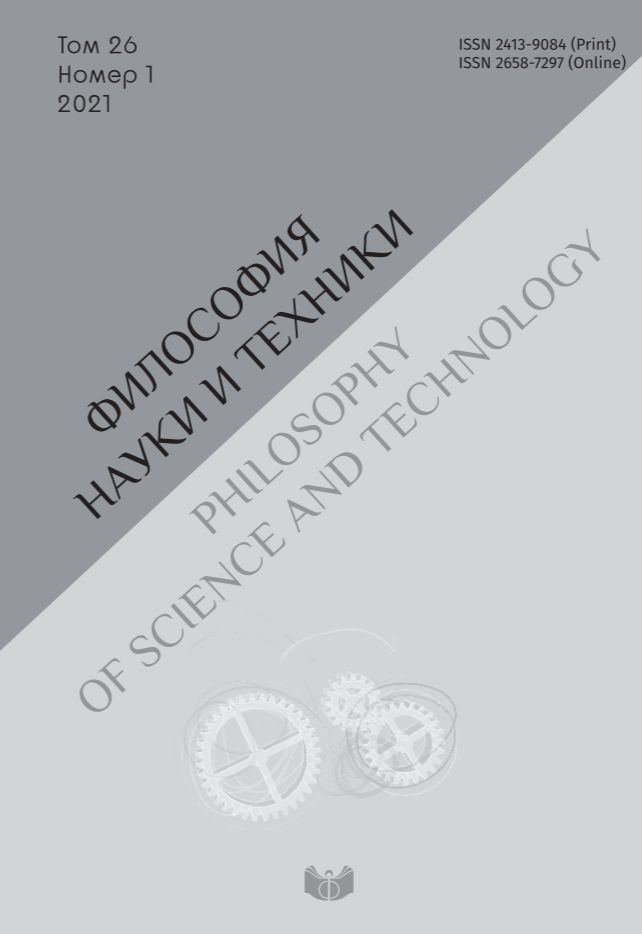Qualia realism and representationalism
DOI:
https://doi.org/10.21146/2413-9084-2021-26-1-107-121Keywords:
philosophy of mind, consciousness, perception, qualia, phenomenal character, naturalism, representationalism, direct realism, intentionality, transparency of experienceAbstract
The article deals with the problem of naturalistic explanation of an essential feature of all conscious mental states – the phenomenal character. The conception of qualia realism can be considered as one of the options for a non-naturalistic explanation of this phenomenon. Nevertheless, it is believed that the phenomenal character of experience can be explained in terms of representational content that are more acceptable to naturalism. As a rule, in these discussions, qualia are identified with the non-representational properties of experience – mental paint. The author analyzes in detail the relationship between the concepts of “qualia” and “mental paint” in the key work of G. Harman. It is shown that Harman’s argument against qualia realism fails. He defined qualia in terms of the mental paint conception, which contains consequences that replace the original thesis of qualia realism. To attack the foundations of qualia realism in a more relevant way, the author develops A. Kind’s idea of the epistemic dimension of qualia. Kind points out that since the philosophers arrived at the question of the existence of qualia by considering the plausibility of functionalism, they were so focused on metaphysical considerations that they forgot that this phenomenon is connected in the first epistemic dimension. On the basis of this, a new version of the argument from transparency of experience versus qualia realism was proposed. The argument demonstrates that the qualia realism fails the test of introspective analysis of perceptual experience. Qualia turn out to be theoretical objects that do not fulfill their prescribed explanatory function. This undermines the foundations of metaphysical arguments against the reductionist approach to consciousness, since they proceeded from the assumption of the existence of referents of the concept of “qualia”. The variant of the explanation of the phenomenal character of experience in terms of representationalism also faces internal problems. In this regard, the author offers the option of direct realism, since it is well compatible with the transparency thesis and is generally consistent with the naturalistic attitudes of the representationalism.











